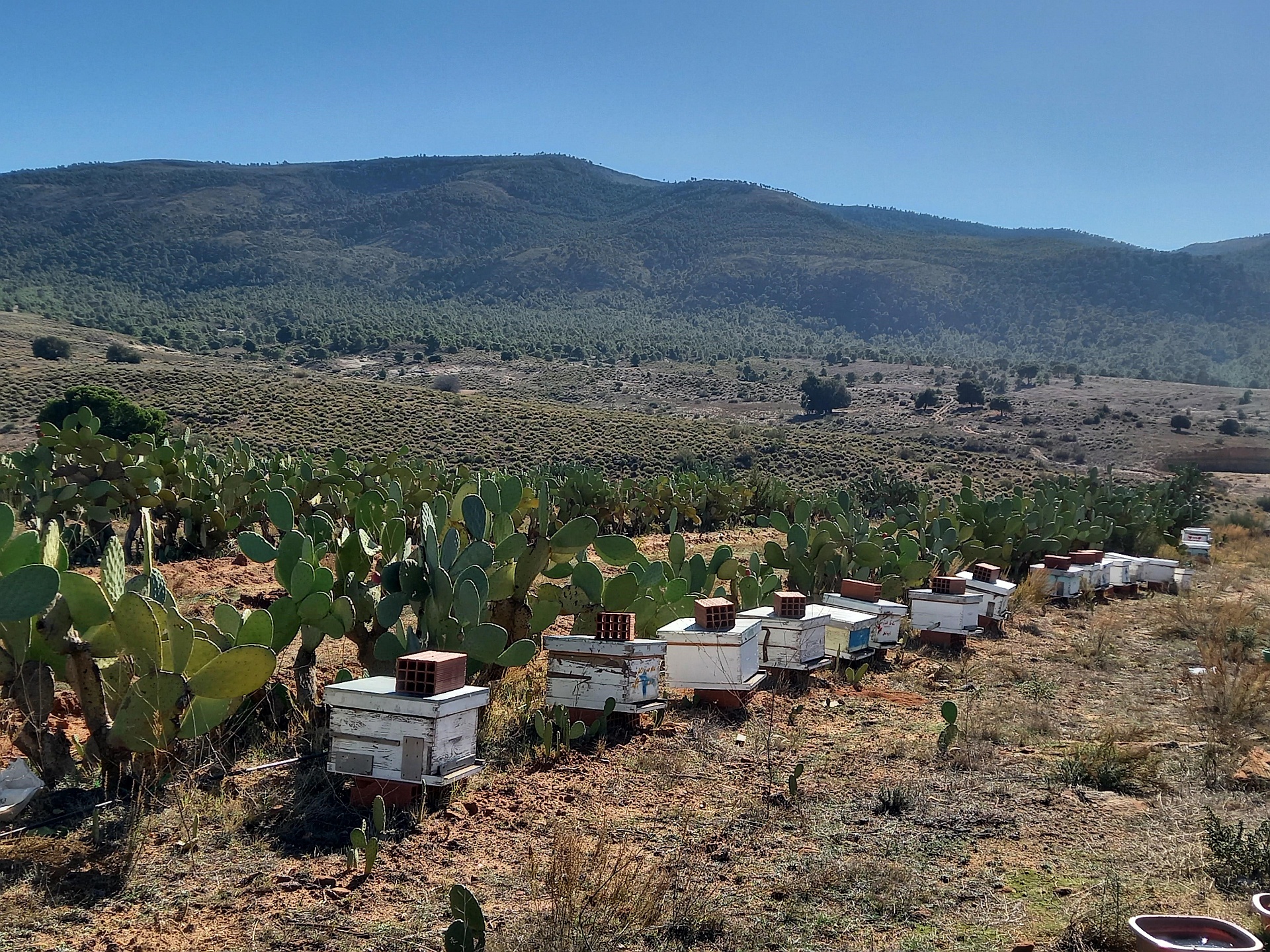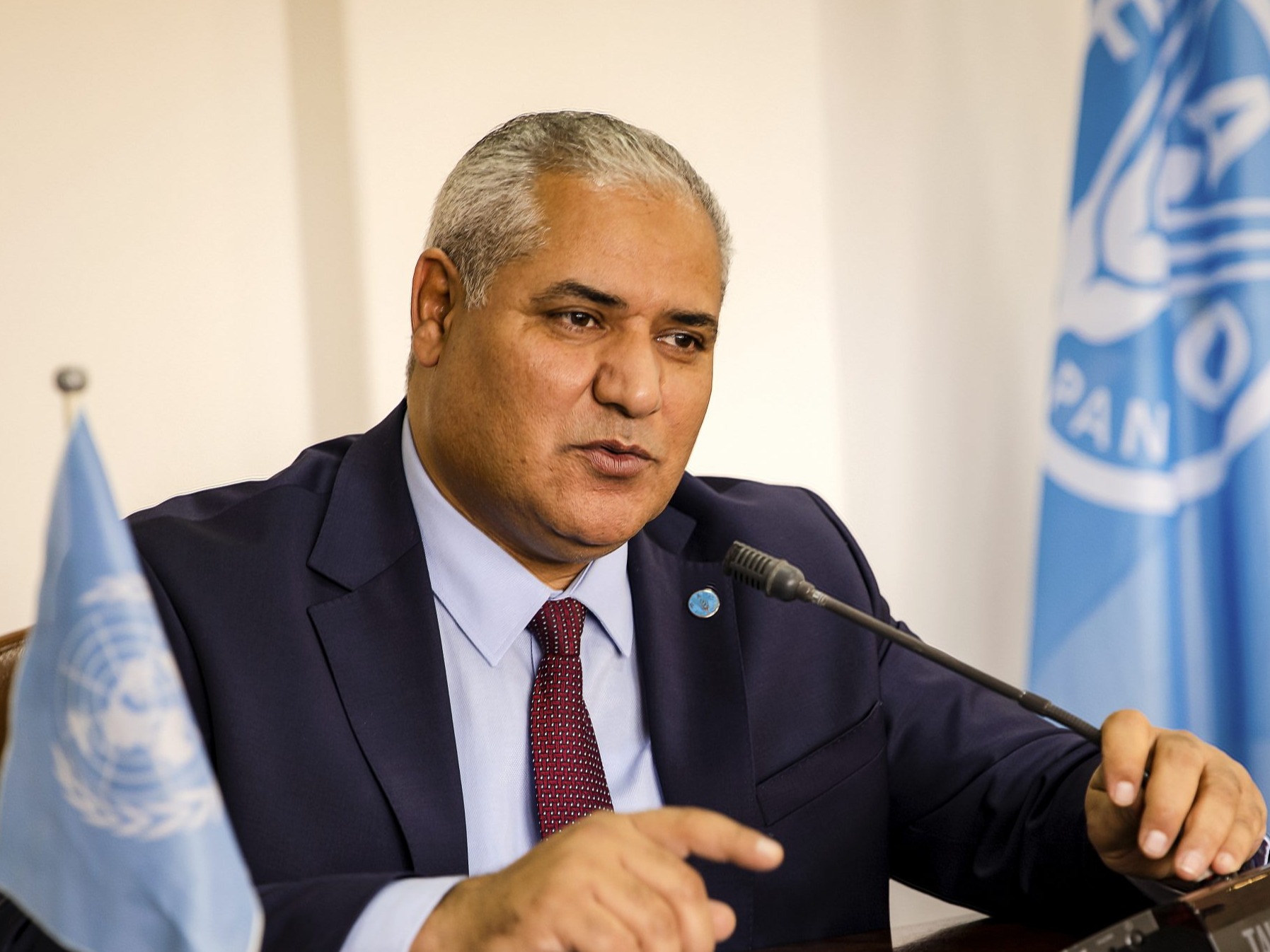FAO Assistant Director- General
Innovating today for a greener tomorrow: FAO's initiatives in the Near East and North Africa region

Forest cactus beekeeping in Tunisia
©FAO Tunisia
As we approach the International Day of Forests on 21st March, it's crucial to recognize the significance of forests, especially in dryland regions like the Near East and North Africa (NENA). With the region's population soaring, demands on land and water are escalating, making initiatives for greening agriculture, water scarcity, and climate action critical priorities for FAO. So, what are the key initiatives shaping this agenda?
Pioneering initiatives for sustainable forestry in dryland areas
Just weeks ago, the 37th session of the Regional Ministerial Conference for the Near East and North Africa (NENA) in Amman, Jordan, highlighted FAO's pivotal role in greening agriculture. Discussions emphasized enhancing agricultural sustainability, urging FAO to support countries in scaling up climate-resilient practices, integrating bioeconomy measures, and strengthening the linkages between agriculture and forests for the best of ecosystems and communities' resilience.
FAO spearheads efforts against threats like the Red Palm Weevil (RPW) in the NENA region, through events like the Sixth International Date Palm Conference in Abu Dhabi in 2018. These events facilitated the development of the RPW management frameworks and regional trust funds. The establishment of the OASIS (Original Agroecological Survey Indicator System) center for excellence aims to restore palm trees as a source of livelihood for the most vulnerable communities living around the oasis.
In Egypt's Red Sea coasts, mangrove forests, crucial for stabilizing soil and protecting against erosion, face threats from construction, oil leaks, and overgrazing. Initiatives like the two-year government project aim to rehabilitate mangroves and mitigate climate change effects, highlighting their importance for biodiversity and carbon sequestration.
Despite significant progress, challenges persist, exemplified by the cactus cochineal invasion in the NENA region. FAO's recent technical meeting in Marrakesh highlighted collaborative efforts to combat this pest, reaffirming their dedication to supporting regional capacities in forest health, pest management and sustainable agriculture.
Unlocking innovation for forest preservation
This year's International Day of Forests theme, "Forests and Innovation," highlights technology's role in environmental protection. Innovations like FAO and Google's Ground app and drone and satellite forest monitoring are drivers of transformative change in natural resource management.
In FAO's Regional Priority 3 on greening agriculture, water scarcity, and climate action, innovation extends beyond technological advancement. Nature-based solutions such as silvopastoralism are vital in desertification mitigation and food security. FAO emphasizes synergy between agriculture and forestry to fulfill the 2030 Agenda. The forthcoming launch of the Regional Knowledge Hub for Integrated Biodiversity Resilience and Agrosilvopastoral Food Systems (KHIBRA) will bolster agroforestry activities. Cross-cutting projects combating desertification, like the Green Dam in Algeria and the Green Wall in Mauritania, exemplify holistic biodiversity restoration efforts. High impacts are also expected to result from the newly launched Green Middle East Initiative by Saudi Arabia. Member countries have identified priorities, including governance, capacity building, and enhancing the biodiversity business environment.
Social innovations such as FAO's MA&D approach, implemented in some rural areas of Tunisia and Morocco, empower local communities to develop sustainable income-generating enterprises while conserving tree and forest resources.
Addressing drought and desertification
Drought is a critical concern in the Near East, drawing global attention post-Glasgow Climate Pact and COP15 of UNCCD. FAO RNE's flagship publication, The State of Land and Water Resources for Food and Agriculture (SOLAW), highlights the region's high-water stress and land degradation.
The Water Scarcity Initiative (WSI), led by FAO RNE and partners, addresses the region's acute water scarcity challenges. With demand rising because of population growth and urbanization, and supply dwindling from reduced rainfall and inefficient use, the WSI focuses on strategic planning, governance enhancement, and sector coordination for water and food security. Collaboration and monitoring tools are key to mitigating factors exacerbating water scarcity and fostering sustainable water and food security in the region.
Shaping a sustainable tomorrow: FAO's influence and opportunities at COP16
The upcoming United Nations Convention to Combat Desertification's 16th Conference of the Parties (COP16) in Riyadh, Saudi Arabia, will unite stakeholders to address land degradation, drought resilience, and sustainable land management, presenting a unique opportunity for progress. Strengthening countries' capacities to adopt ecosystem-based approaches, as outlined in the UN Decade on Ecosystem Restoration, is essential. Multi-stakeholder platforms like the FAO Hand-in-Hand Geospatial Platform, alongside others like AQUASTAT and FAOSTAT, foster international and regional collaboration for sustainable agriculture, contributing significantly to a greener and more sustainable future.
UN Decade on Ecosystem Restoration
The Mediterranean region's recognition as a UN World Restoration Flagship highlights FAO's pivotal role in ecosystem restoration through its Committee on Mediterranean Forestry Questions–Silva Mediterranea. These initiatives combat desertification, deforestation, and biodiversity loss, serving as models for global restoration endeavors within the framework of the UN Decade on Ecosystem Restoration.
Engaging young people and local communities is essential for a greener future. By empowering these groups, we can harness diverse perspectives and innovative ideas to address the complex challenges of land degradation, drought resilience, and sustainable land management. Collective action and collaboration across sectors are key to achieving sustainability for future generations.
Please visit :
- Regional Priority 3: greening Agriculture, Water Scarcity and Climate Action
- Near East Forestry and Range Commission
 | Abdulhakim Elwaer is Assistant Director-General and Regional Representative for the Near East and North Africa for the Food and Agriculture Organization of the United Nations. |
